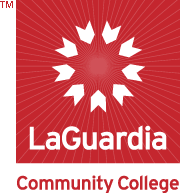Document Type
Assignment
Publication Date
11-2019
Abstract
In the National Endowment for the Humanities (NEH) Meanings of War and its Aftermaths Seminar, offered to LaGuardia Faculty in the 2018-19 academic year, we examined numerous critical essays and literary texts, as well as photographs and documentaries, to gain a more nuanced understanding of the ways war continues to inhabit peoples’ lives. When I began participating in this Seminar, I had already planned a first-semester English Composition course based on the theme, Belonging, Exile, and Migration. Thinking about connections between our readings for the NEH Seminar and my course, I was particularly interested in the ways stories of displacement and photographs of migration might be used to tap into and enlarge students’ understanding of their own experiences and of events unfolding daily in the news since the current U.S. administration (2016) introduced the “immigration crisis.”
As our English 101 course unfolded, we analyzed terms such as “refugee,” “migrant,” “undocumented immigrant,” and “asylum seeker,” and discussed turbulent developments at the border as they were presented in the news. We came to characterize the events at the border, and decisions regarding treatment of immigrants as a kind of “war at home.” Some students wrote about their own experiences of migration to avoid local violence, others described their family’s participation in a Visa Lottery and others spoke about their status as Deferred Action Childhood Arrivals. We watched documentaries about families fleeing war-torn countries such as Syria. In constructing the research assignment below, I was careful to offer students choices. If they preferred not to discuss personal or family experiences, they could choose from various sources in our readings.
LaGuardia’s Core Competencies and Communication Abilities
Course Content and Connection to LaGuardia Competencies
The three key assignments presented here, and their two supporting class activities, are designed to address the Inquiry and Problem-Solving Core Competency and the Written Communication Ability required for English 101.The research essay (Assignment #1) is an inquiry and problem-solving assignment. It asks students to “seek and use disciplinary and cross-disciplinary content knowledge to address challenging issues, weighing evidence and drawing conclusions through a process of synthesis and evaluation.” Students analyzed their own experiences as immigrants, or used a primary source of their choosing, and they connected that example to the experiences of others facing migration, displacement and related emotional experiences.
Assignment #1 is also a written communication ability assignment as students are asked to construct knowledge by selecting, linking and evaluating research materials related to a specific aspect of the immigration experience. Each student chose a specific stage of the journey to focus on. They examined obstacles faced, trauma experienced, and adjustments made, and they compared and synthesized personal examples with research. Depending on the topic, the structure of the essay follows an argumentation pattern or a problem-solution pattern. And in the conclusion to the essay, students are invited to impart a message to their audience related to ethical questions the topic raises about the treatment of those arriving at our borders.
The photography essay, (Assignment #2), in a more subtle way, is an inquiry and problem-solving assignment because it asks students to close read the photograph, research its context, connect that context to the migration theme, and to consider ways a photograph communicates differently from a written text.
Similarly, the final reflective essay (Assignment #3) asks students to review our class readings and screenings and to assemble and synthesize evidence from diverse sources of knowledge relevant to our theme by explaining how their selected texts enlarged their understanding.
Creative Commons License

This work is licensed under a Creative Commons Attribution-Share Alike 4.0 License.


Comments
This resource is part of the Learning Matters Assignment Library.